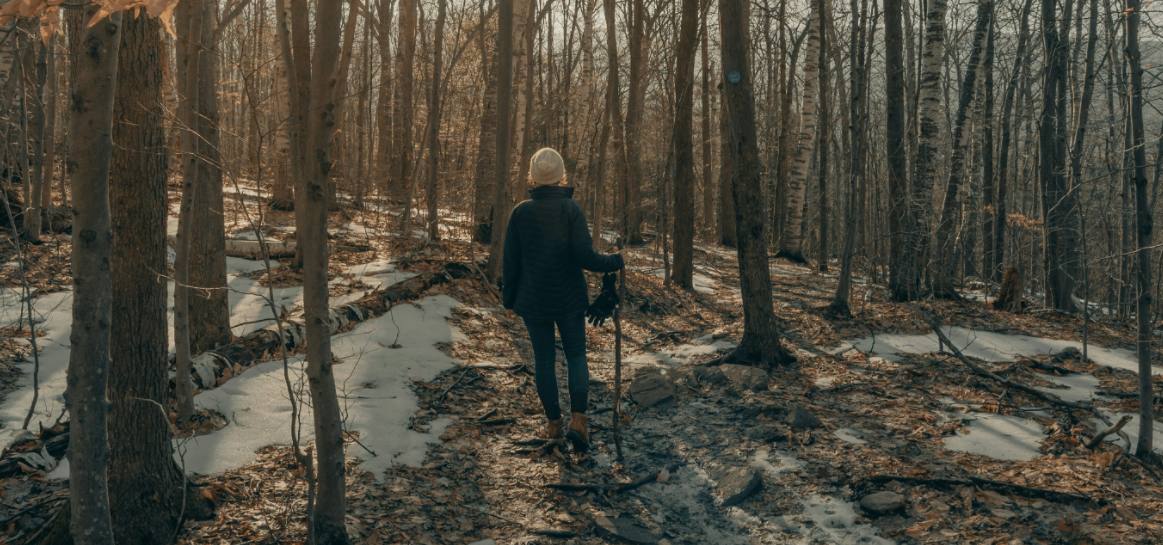For hunters, the thrill of the hunt doesn’t end when the season closes. While some might think that the off-season is a time to rest, it’s actually an essential part of a hunter’s year. The off-season is when hunters focus on a range of activities that help sharpen their skills, prepare their gear, and contribute to conservation efforts. Here are 17 things hunters can do in the off-season to stay sharp, productive, and connected to nature.
1. Scout New Locations
During the off-season, hunters have the perfect opportunity to explore new hunting grounds. Without the pressure of an active season, you can walk through forests, fields, and other habitats to familiarize yourself with the terrain. Using tools like trail cameras or mapping apps can help you identify potential hunting spots for the upcoming season.
2. Review and Maintain Gear
Proper maintenance of hunting equipment is crucial. The off-season is the best time to check and maintain gear such as rifles, shotguns, optics, hunting boots, and clothing. A thorough inspection ensures that everything is in working order when hunting season starts again. Don’t forget to clean and store your firearms properly to avoid corrosion or rust.
3. Practice Shooting
Hunting requires precision, and shooting practice is never out of season. Whether it’s at a shooting range or in your backyard (with proper safety measures), using different targets and distances can help improve accuracy. Practice also helps build muscle memory, so when the season comes around, you’re ready to make the perfect shot.
4. Work on Fitness
Hunting often requires endurance, strength, and agility, especially if you’re trekking across rugged terrain or hauling your harvest. Staying in shape during the off-season will make you more effective in the field. Activities like hiking, weight training, running, and cycling will help improve your overall fitness and build stamina for those long days in the wilderness.
5. Learn New Hunting Skills
The off-season is a great time to expand your skill set. Try learning new techniques or methods related to your hunting style. For example, if you’re into bow hunting, consider taking a bow repair or tuning class. Or, if you prefer waterfowl hunting, learning advanced decoy placement strategies or duck calling can give you an edge when the season begins.
6. Volunteer for Conservation Efforts
Many hunters are passionate about conservation, and the off-season is the perfect time to get involved. Volunteer with organizations like Ducks Unlimited, National Wild Turkey Federation, or local wildlife agencies to help restore habitats, plant trees, or assist with wildlife monitoring. These efforts ensure that wildlife populations thrive and that hunting grounds remain healthy for future generations.
7. Enhance Your Hunting Knowledge
Hunting knowledge isn’t just about knowing where to hunt—it’s about understanding the behavior of the animals you pursue. During the off-season, take time to read up on wildlife biology, ecology, and behavioral patterns. This could involve reading books, subscribing to hunting magazines, or taking online courses related to hunting and wildlife management.
8. Gear Up with New Technology
The off-season is the perfect time to explore new hunting tech. Whether it’s upgrading your optics, using GPS devices, or investing in trail cameras, technology can give you a competitive advantage. Additionally, you can explore new apps that help track weather patterns, moon phases, or animal movements.
9. Build or Upgrade Your Hunting Blind
If you hunt from a stand or blind, the off-season is the ideal time to build or upgrade your setup. Whether you’re creating a more comfortable shooting platform or improving camouflage, working on your blind ensures you’ll be prepared for the next season. Plus, you can test out new materials and designs without the time pressure of the season.
10. Tune Up Your ATV or Hunting Vehicle
For hunters who use ATVs, UTVs, or trucks to get to hunting spots, it’s essential to maintain these vehicles. Regularly check the engine, tires, and overall condition to avoid breakdowns in the field. Also, if your vehicle has been exposed to muddy or wet conditions, give it a thorough cleaning and check for rust or damage.
11. Prepare Your Hunting Property
If you own or lease hunting land, the off-season is an excellent time to improve the property. Plant food plots for wildlife, clear brush, or set up feeders to attract game. These preparations can help create a welcoming environment for animals and make hunting more successful when the season opens.
12. Refine Tracking Skills
Tracking is a vital skill for many hunters, especially those who hunt big game. Use the off-season to improve your tracking abilities by practicing on local trails. Learn to identify different animal tracks, droppings, and other signs that indicate animal presence. This skill can be invaluable during the hunting season, especially when tracking elusive prey.
13. Join a Hunting Community
The off-season is a great time to connect with fellow hunters. Whether through social media groups, forums, or in-person meetings, being part of a hunting community allows you to exchange tips, stories, and advice. It’s also a way to stay motivated, share conservation initiatives, and discuss the latest hunting trends.
14. Plan Future Hunting Trips
The off-season offers time to plan out your hunting calendar for the year ahead. Research hunting regulations in different states or countries, and start preparing for out-of-state or international trips. Planning early helps you get the necessary licenses, equipment, and accommodations sorted out without the rush as the season nears.
15. Focus on Nutrition
A hunter’s diet during the off-season plays a role in overall physical preparedness. Eating a balanced diet full of lean proteins, fruits, vegetables, and healthy fats ensures that you have the energy and stamina for hunting. Proper nutrition will support your workout routine and help you stay healthy during hunting season.
16. Sharpen Your Survival Skills
Hunting often takes you deep into the wilderness, where survival skills can be as crucial as your weapon. Use the off-season to practice fire-making, shelter-building, knot-tying, or navigation skills. These practical skills ensure that you’re prepared for unexpected situations during your hunts.
17. Prepare Your Dog (if applicable)
If you’re a hunter who works with a hunting dog, the off-season is the perfect time for training. Whether it’s pointing, retrieving, or obedience training, working with your dog year-round ensures that your canine companion will be ready for the field. Make sure to keep their fitness and health up to par as well.
Conclusion
The off-season is not a time for hunters to rest on their laurels—it’s an opportunity to refine skills, enhance knowledge, and contribute to conservation efforts. By staying active during the off-season, hunters ensure they are fully prepared for the challenges and excitement of the upcoming season. Whether it’s practicing shooting, maintaining gear, or scouting new locations, there’s always something productive to do that makes the next hunting season even more successful.
By following these 17 tips, you’ll not only improve your hunting skills but also strengthen your connection with nature and your community. The off-season is your time to recharge, learn, and prepare for the thrill of the hunt ahead.


